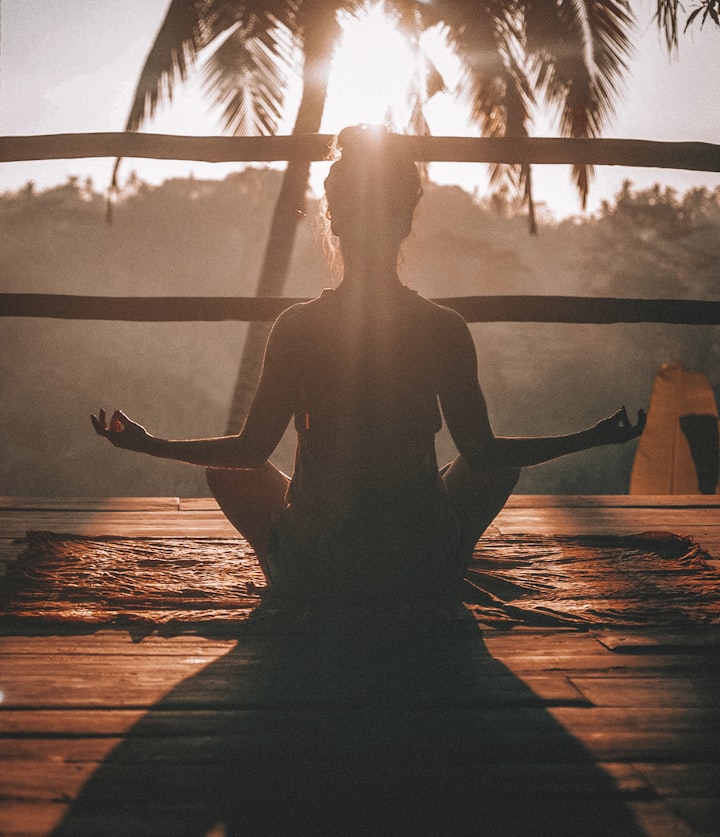The Power of Mindfulness: Achieving Personal Growth Through Meditation
Unlock Your Potential: Harness the Power of Mindfulness Through Meditation for Personal Growth

I. Introduction:
Mindfulness is a state of active, open attention to the present. It is about being aware of what is happening in the present moment, without judgment. Mindfulness has been found to have many benefits for mental and physical health, including reducing stress, anxiety, and depression. It can also lead to increased focus and concentration, as well as improved relationships and emotional intelligence. In this post, we will explore the power of mindfulness and how it can be used as a tool for achieving personal growth through meditation
II. Understanding the Basics of Mindfulness:
Before diving into the specifics of mindfulness techniques, it's important to understand the basics of what mindfulness is and how it differs from other practices such as meditation. Mindfulness is a state of being present in the moment, without judgment. It is about paying attention to what is happening in the present, without getting caught up in thoughts about the past or future. In contrast, meditation is a specific practice that can be used to achieve mindfulness.
Meditation is a practice that can be used to achieve mindfulness. There are many different types of meditation, but they all involve paying attention to something in the present moment, such as the breath, a sound, or a phrase. The goal of meditation is to achieve a state of mindfulness, where the mind is focused and calm.
The science behind mindfulness has revealed that regular mindfulness practice can lead to changes in the brain. Research has shown that mindfulness can increase the thickness of the prefrontal cortex, which is responsible for attention, decision-making, and emotional regulation. It can also lead to an increase in the size of the hippocampus, which is responsible for memory and learning.
III. Mindfulness Techniques for Personal Growth
Mindfulness meditation is a practice that involves focusing one's attention on the present moment, without judgment. It can reduce stress, improve focus and concentration, and promote overall well-being.
A body scan is a mindfulness technique in which one systematically focuses on each part of the body, starting at the toes and working up to the head. This can help to release tension and promote relaxation.
Progressive muscle relaxation is another technique that involves tensing and then relaxing each muscle group in the body. This can help to reduce physical tension and improve relaxation.
Mindful breathing is a simple but effective mindfulness technique that involves paying attention to the breath as it moves in and out of the body. It can help to reduce stress and promote a sense of calm.
Mindful eating involves paying attention to the experience of eating, including the taste, texture, and smell of food. This can help to reduce overeating and promote weight loss.
IV. Incorporating Mindfulness into Daily Life
Incorporating mindfulness into daily life can have a number of benefits, including improved relationships, overall well-being, work productivity, and child development.
Mindful communication involves being present and fully engaged in conversations with others, and being aware of one's own thoughts and emotions while communicating. This can lead to more effective and satisfying interactions with others.
Mindful walking involves paying attention to the sensations of walking, such as the sensation of the feet hitting the ground, and the sights, sounds, and smells around us. This can help to reduce stress and promote a sense of calm.
Mindful listening involves paying full attention to what is being said and not allowing distractions to interfere. This can help to improve work productivity by allowing you to focus on the task at hand and improve the quality of work.
Mindful parenting involves being present and fully engaged with children, being aware of their needs and emotions, and responding to them in a non-judgmental and compassionate way. This can help to promote healthy child development and positive parent-child relationships.
V. Overcoming Barriers to Mindfulness
Some common misconceptions about mindfulness include that it's religious or requires special abilities or talents. Mindfulness is a secular practice that can be learned and practiced by anyone, regardless of their beliefs or abilities.
Resistance to mindfulness can come in many forms, such as feeling like there's not enough time, feeling self-conscious or not knowing where to start. To overcome resistance to mindfulness, one can start small, setting aside just a few minutes a day to practice, finding a quiet and comfortable place to practice, and creating a daily routine to make it a habit.
Another strategy to overcome resistance is to seek out guidance, such as a mindfulness class or teacher, or to find a mindfulness community.
To maintain a mindfulness practice, it's important to be consistent and to make time for practice every day. It can also be helpful to set realistic goals, track progress and make adjustments as needed. It's also important to remind ourselves the reasons why we started this practice and the benefits we have received from it.
VI. Conclusion
In summary, mindfulness is a practice that involves paying attention to the present moment, without judgment. It can have a number of benefits, including reducing stress, improving focus and concentration, and promoting overall well-being.
There are various mindfulness techniques that can be incorporated into daily life, including mindfulness meditation, body scan, progressive muscle relaxation, mindful breathing, and mindful eating. Additionally, incorporating mindfulness into communication, walking, listening and parenting can also bring significant benefits.
It's important to note that there are common misconceptions about mindfulness, and one may encounter resistance to start and maintain a mindfulness practice. However, with a consistent effort and the right mindset, anyone can overcome these barriers and incorporate mindfulness into their daily lives.
I encourage readers to give mindfulness a try and see how it can benefit them. Start small and make it a daily habit, and soon you'll be able to see the benefits for yourself.





Comments
There are no comments for this story
Be the first to respond and start the conversation.